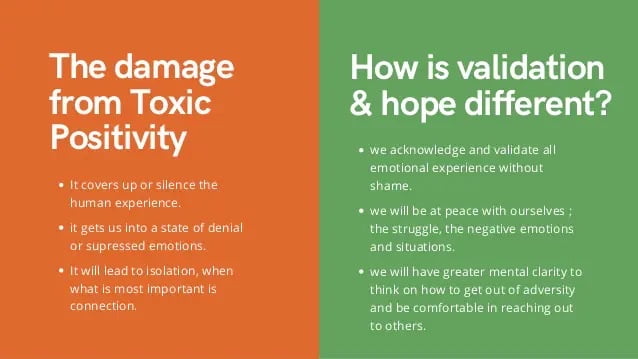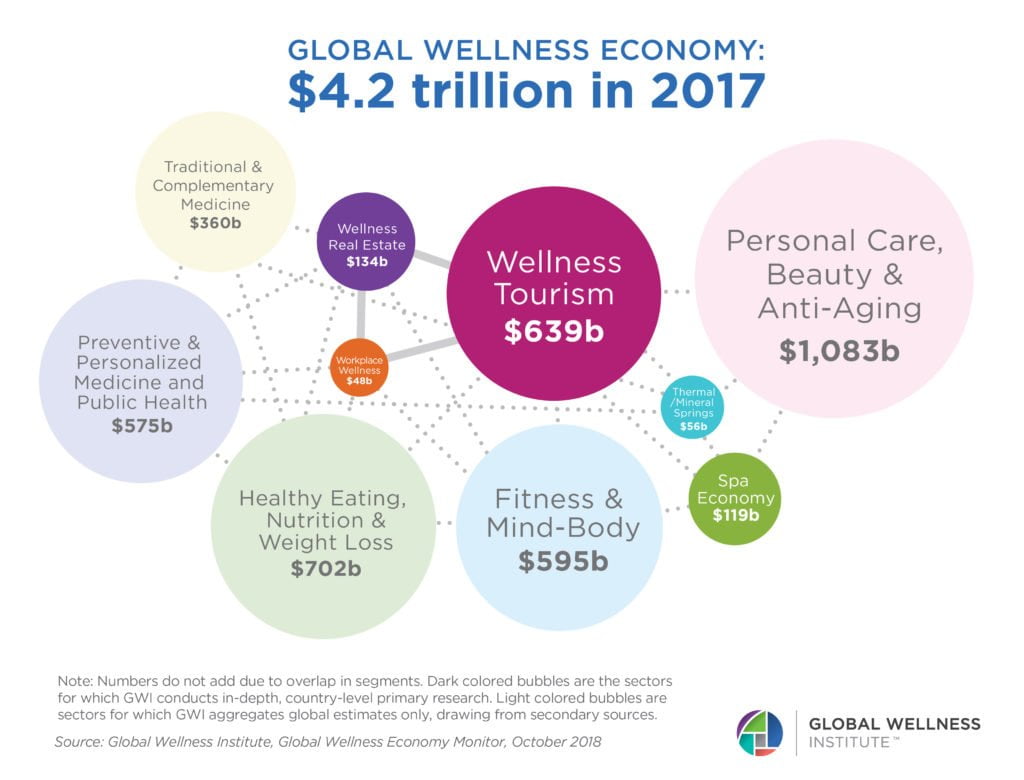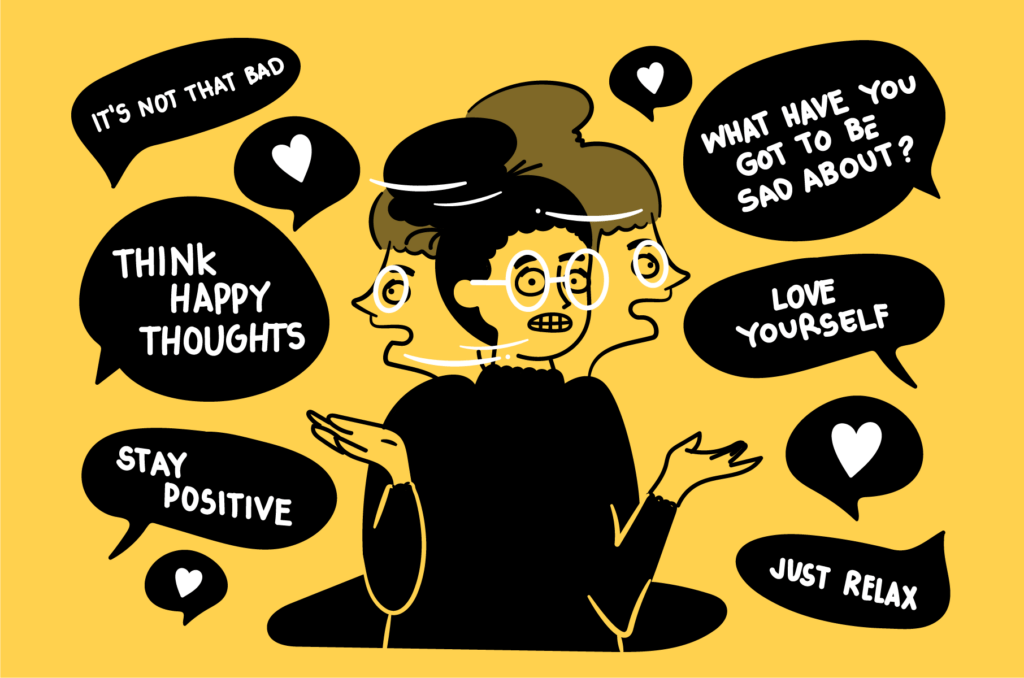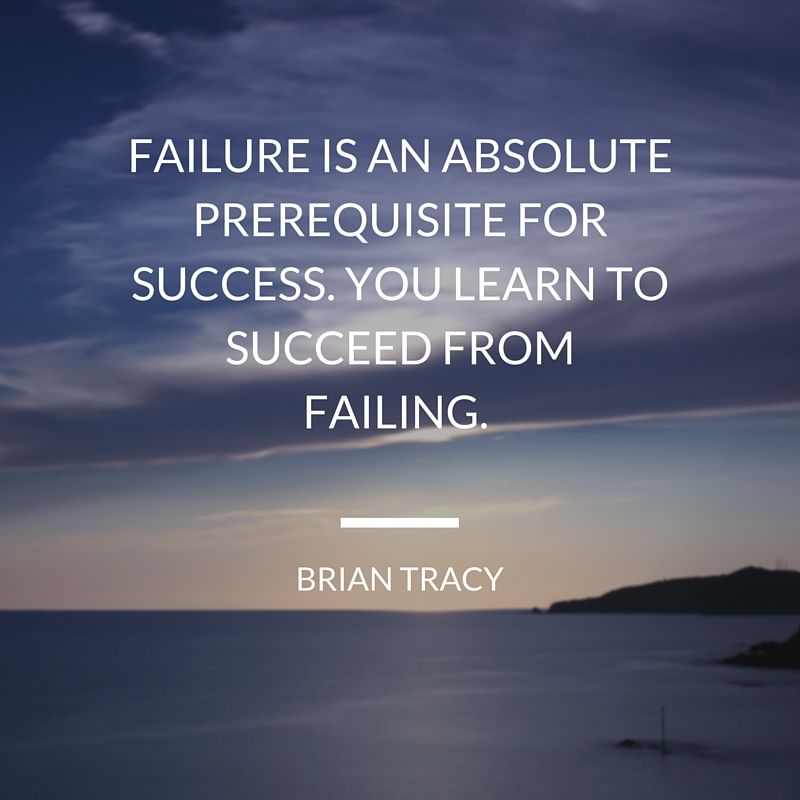The problem with toxic motivation. By Sharilynn H

One of the most dangerous things about toxic motivation is telling people it’s not ok, to not be ok – however, it’s OK, to not always be ok.

Context
I have written a few articles on the subject of motivation and productivity, however, the main premise of my articles emphasizes the importance of balance. Motivation isn’t based on solely setting goals nor is it about achieving them. Instead, it’s about striving towards finding balance and identifying when your need to slow down in order to reassess your mental health. While motivation is essential to function in every day life it’s not a permanent state of being but rather something that requires constant work.
While motivation, and positivity are positive emotions to have. It’s important to know that negative emotions like lethargy, sadness, and demotivation are equally important to experience since they help us grow and develop a deeper sense of self awareness.
Toxic wellness motivation
Although mental health does over lap with various other industries, mental health as a whole is made up of emotional, psychological, and social well-being. Mental health focuses on how we think and behave, and in return, how our thinking and behavior influences overall mental well-being
There’s a fine line between encouraging mental well-being and the promotion of toxic motivation through false promotional advertising of wellness products. Toxic motivation is a huge problem particular when used by large corporations since it can be used for financial gain by exploiting the vulnerability of people’s mental health. While there are many great products that do help improve people’s lives it’s important to know that you do not require expensive beauty products or overpriced beauty essentials to feel good about yourself.
Wellness- the new beauty industry
Wellness is often encouraged for commercial purposes, and since mental health overlaps with mental wellness it’s become financially beneficial for many companies to align themselves with an image that promotes wellness in support of mental health. However that is not a problem since we have seen a rise in a mental health awareness aimed at breaking down the barriers and stigma often associated with mental health.
The issue is mainly false advertising that promotes toxic motivation in the form of healthy advice. We live in a society that often endorses mental health as an anesthetic by associating itself with optimal mental well-being in the form of unrealistic psychological and physical standards. One of the most overused and dangerous narratives is perpetuating the idea that always being happy is the golden standard, and deviating from that standard is wrong.
The endorsement of wellness products has also become popular with various influences since products can fall under the wellness branch, making it harder to discern authentic product advertising from false.
For example, selling weight loss solutions to impressionable young teens by calling it “detox teas.” is not only dangerous in terms of promoting unhealthy body perceptions but also encourages easy weight loss solutions in unhealthy ways. It also encourages false advertising under the category of mental health and wellness, making it challenging to identify transparency and authenticity in product endorsements.
While promoting products that claim to promote mental well-being” living a holistic life filled with yoga, meditation, and green smoothies aren’t wrong they aren’t right either since mental well being isn’t found in a product but rather a combination of a balanced life style.
Mental health is profitable
“The overall wellness market was valued at $4.2 trillion during 2017. It is believed that since then, the number has continued to increase, given that more and more people showcase an active interest in their overall health and wellness“. https://policyadvice.net/insurance/insights/health-wellness-industry/
For corporations and businesses large and small, overlapping mental health with wellness is a sector that’s become rather lucrative since wellness also overlaps with the beauty and health industry. According to a recent report from Allied Market Research, the global cosmetics industry generated $380.2 billion in 2019 and is expected to reach $463.5 billion by 2027, witnessing a CAGR of 5.3% from 2021 to 2027.15 Mar 2021.
Therefore its no surprise endorsing mental wellness along with most promotional advertising has become the new go-to standard and favored choice when promoting a new product. The standard policy for most products has seen demand and change in how products are manufactured with a rise in “clean, environment-friendly and ethically sources products deemed more socially acceptable.
The lipstick effect

According to Forbes magazine, the beauty and wellness industry is like no other, in the sense that it continues to thrive even during times of economic difficulties since beauty products do provide a sense of pleasure and enjoyment. This phenomenon is known as the lip stick effect which is psychological consumer response to filling a void or wanting a quick solution to feeling uplifted. “Lipstick Effect,” a theory proposed by Professor Juliet Shor back in 1999 in her book The Over-Spent American. Shor hypothesized that when times get tight, consumers will continue to indulge in prestige cosmetics – little luxuries – that give them an emotional lift while forgoing expenditures on higher-priced luxury goods. I can confirm this theory to be true, when we feel bad about ourselves or experience disappointed we seek out ways to envoke a reward respomse through superficial short lived ways.
During my early teens I was constantly broke till my account cried in over draft. This was due to spending money on things I thought needed or to avoid dealing with a negative emotion.
This is because we aren’t taught that negative emotions aren’t bad and how to deal with them, instead we are taught to find quick ways of temporary escapism that never fully focus on the main problem. We don’t like negative emotions thus it’s no surprise that Amazon saw a surge in none essential product purchases during COVID restrictions.
Wellness products and toxic motivation
Wellness products and the promoting of healthier lifestyles aren’t wrong, false advertising is. While the wellness industry is broad with many products offering benefits in their way. Many products and lifestyle changes like working out regularly or drinking healthy smoothies do provide some health benefits, however, it only works in combination with multiple lifestyle adjustments. A smoothie won’t cure depression, but a healthier lifestyle combined with a good support system, healthy motivation, and professional help can greatly improve overall mental health.
It’s essential to know that mental well-being isn’t mental health, even though the two do often overlap. Well-being is an emotion, which often focuses on how your feel about yourself. When your well-being is in danger this could be due to physiological as well as psychological reasons. In other words, how we feel can be affected by many things such as unhealthy relationships, stress, bad eating habits, etc. It’s important to note that wellness is not the problem, but rather the endorsement of wellness products as a quick solution to a broader problem.
My experience with depression and toxic motivation
Who can forget the infamous picture of Keanu Reeves sitting alone eating a sandwich alone on a park bench? Many people thought he seemed depressed or sad as if sitting alone and minding your own business is an unnatural concept. While it is possible he may have been feeling sad, the truth is we don’t know, either way, sadness is not a negative emotion in the sense that it should be something we feel ashamed of. If you ever see me sitting alone on a park bench eating my sandwich please just walk on by and allow to enjoy the moment.
Since depression does overlap with feelings of lethargy and demotivation it’s important to consult a health professional when dealing with negative emotions begin to affect your personal and professional life. However negative emotions aren’t always a bad thing and should be evaluated independently.
There are so many articles Id love to write and share regarding my journey with mental health, as well as how implementing various tech helped me manage it, however, that’s for future articles. However as someone that’s dealt with depression in the past, I understand the feeling of hopelessness when you’re about to go down a dark spiral of uncertainty and demotivation, especially in a society that often claims to support mental health when in reality it often favors the glamorization and promotion of mental well being for-profit and commercial purposes.
Negative emotions arent always a negative thing
Depression should not be confused with normal human emotions. There are healthy negative emotions like concern, sadness, healthy anger, remorse, regret, and disappointment. We often shy away from negative emotions since success and positivity are more openly encouraged yet many fail to realize negative emotions can be channeled to teach us more about ourselves than success.
In fact, anger sadness, and disappointment are an important part of life, and essential for self-development. New research shows that experiencing and accepting such emotions are vital to our mental health. Attempting to suppress negative thoughts may result in loss of contentment and overall well-being. https://www.scientificamerican.com/article/negative-emotions-key-well-being/– Thus we shouldn’t discourage experiencing all negative emotions or shame people for experiencing moments of frustration, demotivation, and sadness.
The problem with toxic motivation

It’s important to discern when motivation is healthy vs toxic.
Toxic motivation often achieves the opposite of its intended message. While Motivation is meant to inspire and encourage, toxic motivation achieves the opposite often leaving people discouraged, frustrated, or with a feeling of shame. This is often due to feeling unworthy when you don’t meet a particular standard of what’s deemed the correct social standard. Toxic motivation enforces a false belief that your need to maintain a positive outlook on life all the time regardless of your circumstances in the same way success is glorified over failure even though both experiences offer an opportunity to learn and grow.
While positive emotions are more favorable and what we mostly strive to achieve, negative emotions and experiences are a natural part of the human experience, you cant invalidate negative emotions without invalidating what it means to have a normal human experience. It’s equally important to stress that feeling demotivated doesn’t automatically mean you have depression, although the loss of interest in pleasurable activities may be a sign, therefore you should always speak to a health care provider if you’re unsure about your mental state.
We define toxic positivity as the excessive and ineffective overgeneralization of a happy, optimistic state across all situations. The process of toxic positivity results in the denial, minimization, and invalidation of the authentic human emotional experience. https://thepsychologygroup.com/toxic-positivity/
How to identify toxic motivation
Toxic motivation takes form in various ways like unhealthy relationships or unstable support systems, particularly in situations where people are encouraged to ignore their difficulties by putting on a facade to the world. It’s also in the form of disingenuous posts on social media that mostly promotes the hilites of someone’s life. It can also be found in the form of wellness and inspiration quotes that aim to take complex topics and present them in a condensed manner for easily digestible purposes.
Inspirational quotes like”Always stay positive” arent healthy. This perpetuates a dangerous message that unconsciously reinforces the idea that the only emotion you are allowed to express has to be positive. I
It suggests that if you’re not productive, achieving goals, hitting the gym regularly, or ambitious, you are underachieving or not reaching your full potential, this is false since motivation and Happiness do not always lie in ambitious dreams or the need to chase goals since we aren’t all motivated by the same things. When we are constantly chasing goals we forget to live in the moments and experience life as active participants.
How do you know you are experiencing toxic motivation?
The “always be positive philosophy” is dangerous since it sends a message that being anything but vivacious is wrong. This creates a feeling of shame, causing people to hide negative emotions instead of embracing them as a natural human emotion. More importantly, it may cause people to hide or prevent them from openly seeking mental help; therefore, toxic motivation achieves the opposite of healthy inspiration, which aims to uplift and inspire motivation.
One of the most important things to remember about mental health is that there is no shame in not being ok all the time. Fundermantlly, that’s what optimal mental well-being and mental health are about; it’s finding a sense of balance and creating a lifestyle that keeps you neither under nor overstimulated. As sentient beings, we are very susceptible to emotions, that includes our own and others. When we experience toxic motivation, we simply need to look within. Inspiration is meant to inspire and uplift. Suppose you are experiencing frustration and anger, then it’s poisonous inspiration disguised as “healthy. Use your negative emotions to navigate towards a healthier alternative.
Conclusion
Toxic motivation often only encourages positive emotions while telling people to shy away from negative emotions even though all emotions, negative and positive are a natural part of life. I found a greater sense of continent when I no longer felt shame in failure or felt the need to constantly chase goals or wanting to achieve more. While I remain ambitious and adventurous my goals and ambitions are not solely about being successful in the general sense since success is subjective but rather personal based.
Disclaimer
The content of the web pages in our Mental Health section is provided for general information only. They are not intended to, and do not, amount to advice which you should rely on. They are not in any way an alternative to specific advice. You must therefore obtain the relevant professional or specialist advice before taking, or refraining from, any action based on the information in these web pages. If you have questions about any medical matter, you should consult your doctor or another professional healthcare provider without delay.
For further information regarding the science behind productivity see the article below.














